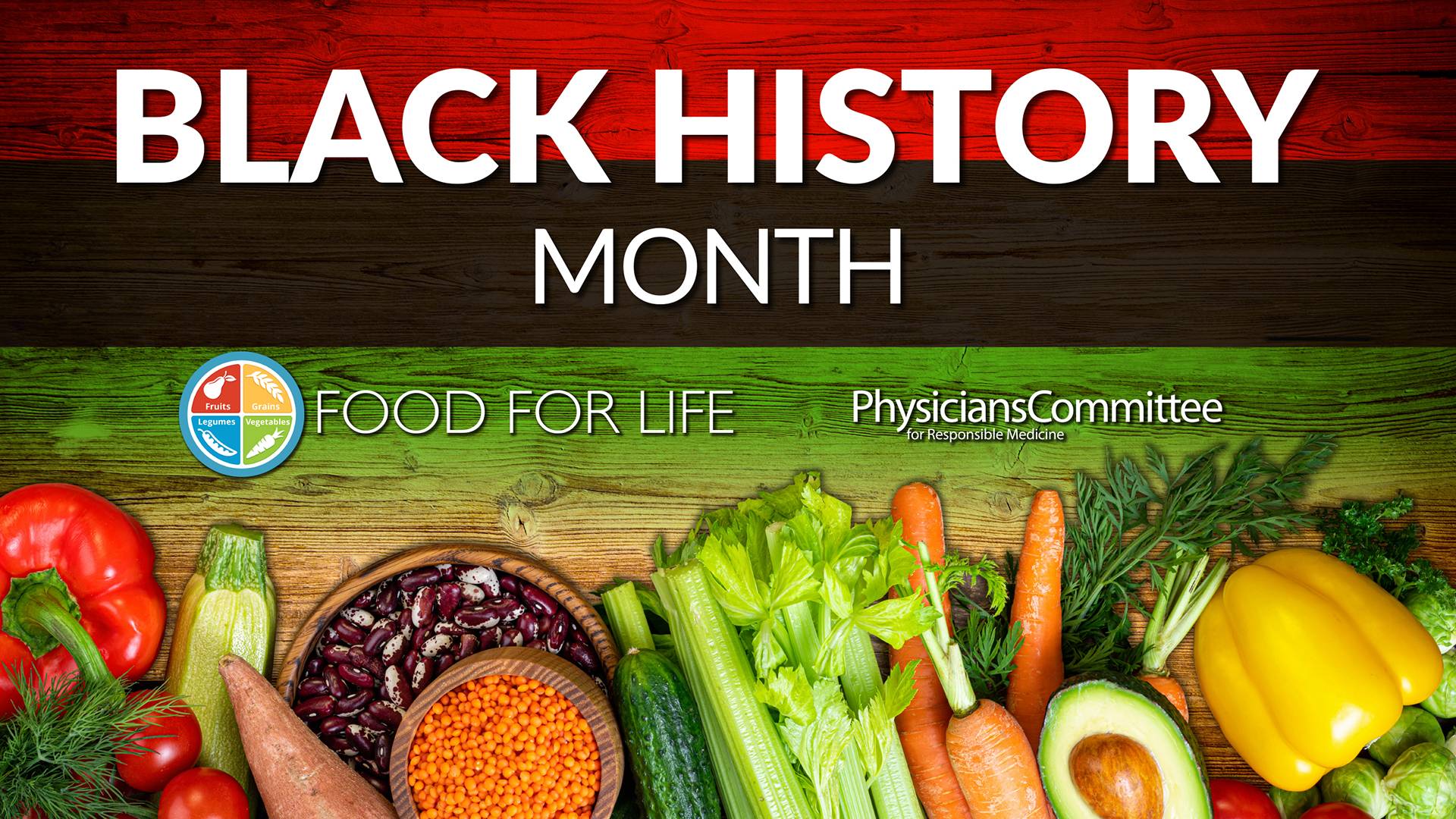Celebrate Black History Month With Food for Life Plant-Based Cooking Classes

The Food for Life plant-based nutrition and cooking class series will honor Black History Month in February with classes that celebrate Black culinary traditions, as well as classes that help fight diet-related health conditions that disproportionately impact Black Americans.
Food for Life classes being offered during Black History Month include the African American Culinary Heritage class series, which honors the ancestral ties of West African foodways that were brought to the United States through the Middle Passage and the culinary traditions, such as soul food, developed by African Americans throughout their history in the United States. Food for Life class series, which will continue to be added throughout the month, will also focus on a plant-based diet for preventing or treating heart disease; type 2 diabetes; cancers including breast, colorectal, and prostate; and hormone-related conditions including menopause and thyroid disease.
“Quality of life got better,” says Timothy Merl, who took a Food for Life class in Reston, Va., with Green Fare Restaurant, a Food for Life institution. “I’m a little lighter in my shoes—not just the weight, but the way I feel physically.”
Research shows the health benefits of adopting a plant-based diet for high blood pressure, heart disease, type 2 diabetes, and breast, colorectal, and prostate cancers, all chronic diseases that, due to multiple socioeconomic factors, disproportionately affect Black Americans.
“I reversed diabetes, I’m off my diabetic medication, I’ve lost the extra 47 pounds, I don’t have to take my rheumatoid arthritis medication anymore, and I went from taking 19 pills a day to three pills a day,” says Naneita Redrick, who took a Food for Life class in Montgomery, Ala., with Food for Life instructor, Carolyn Strickland.
After Donna Green-Goodman, MPH, was diagnosed with breast cancer, she decided to go with a completely plant-based diet and is now cancer-free.
“Once the diagnosis occurred and I started to make the lifestyle changes, other things that I was experiencing that were not bad enough for me to see a physician about began to improve as well,” says Green-Goodman, who is now a Food for Life instructor in Huntsville, Ala.
Eight percent of Black Americans identify as vegan or vegetarian, compared with 3% of all Americans, according to a Pew Research Center survey. A Gallup Poll found that people of color report having reduced meat in their diets at a higher rate and that health is the main reason.
“Black Americans are increasingly adopting a plant-based diet for reasons including health, food justice, and the environment,” says Jennifer Paul, MPH, RDN, a nutrition expert who helped develop the African American Culinary Heritage course curriculum.
Designed by physicians, dietitians, and other health experts, Food for Life classes, a program of the Physicians Committee for Responsible Medicine, promote healthful plant-based eating based on the latest scientific research. Each class includes information about how certain foods and nutrients work to promote or discourage disease, cooking demonstrations of delicious and healthful plant-based recipes, and practical cooking skills and tips for incorporating healthful eating habits into daily life.








